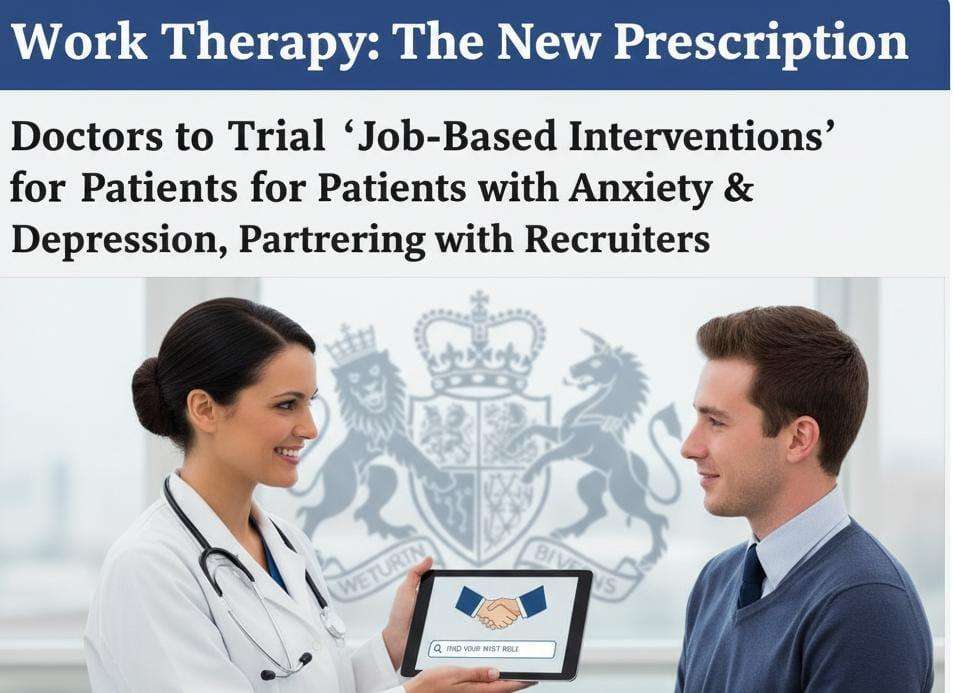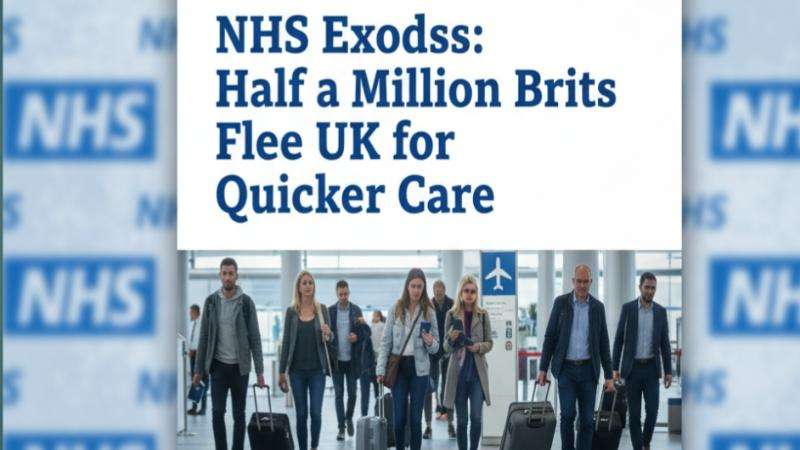The UK government has launched a radical new initiative aimed at tackling the nation's spiralling sickness benefits bill and the crisis of economic inactivity, by encouraging allied health professionals (AHPs) to "prescribe" employment as a form of treatment for patients suffering from depression and anxiety.
New guidance, issued to a range of professionals including therapists, occupational therapists, and physiotherapists, explicitly urges them to integrate discussions about the positive mental health benefits of work into patient assessments. This marks a fundamental shift from a system often perceived as "writing people off" to one focused on ability and re-engagement.
Health Secretary Wes Streeting has been a key proponent of the policy, stating that employment is "just as vital" as diet and exercise for overall health. The new guidance instructs AHPs to ask patients about their job, how it impacts their health, and what accommodations could help them stay in work. For those currently unemployed, the guidance suggests exploring desired roles and overcoming barriers to employment.
The move comes amid alarming figures: more than 2.8 million working-age people are now economically inactive due to long-term sickness, an increase of 800,000 since before the pandemic. Official projections indicate that if this trend is not reversed, the annual bill for sickness and disability benefits could soar past \text{£}100 billion by the end of the decade. The government’s drive is to provide "holistic support" to avoid the detrimental health effects associated with long-term unemployment.
This guidance is part of a broader government focus on reforming the "sick note" culture. Current data shows that 93\% of "fit notes" issued by doctors currently deem a patient completely "not fit for work," with only 7\% suggesting a patient "may be able to do so." Mr. Streeting aims to shift this narrative, focusing on what patients can do, rather than their limitations.
In further developments since the initial guidance, the Department for Work and Pensions (DWP) has announced a new targeted scheme to get an additional 300,000 sick or disabled people into work by 2030. This includes the redeployment of 1,000 specialist Jobcentre staff to provide targeted skills and employment support, particularly to the 2.2 million people on the country's main sickness benefit, many of whom suffer from mental health conditions or musculoskeletal issues. This DWP scheme, which signposts claimants to Government employment support programmes like 'Connect to Work' and 'WorkWell' (combining medical help with career guidance), is currently described as "voluntary help."
Furthermore, the government has accelerated efforts to boost the mental health workforce, with data showing significant progress toward a target of recruiting an additional 8,500 mental health workers by the end of this Parliament. This hiring drive, coupled with investment in 'Talking Therapies' and the linking of patients to dedicated employment advisors, is intended to provide the necessary clinical support alongside the push for work.
Daily Dazzling Dawn Analysis: What Could Happen Next?
The immediate next steps will be focused on the practical implementation of this guidance and the DWP's related schemes.
Increased Scrutiny on AHPs and a 'Culture Clash':
While the government encourages a work-focused approach, AHPs and GPs may face an ethical dilemma. They are trained to prioritise patient health, and for some, the pressure to "prescribe a job" could be perceived as overriding clinical judgement or potentially causing harm if an individual is genuinely too ill. A 'culture clash' could emerge, leading to tension between health professionals and government policy aims.
The Employer's Role Becomes Critical:
The policy's success is heavily reliant on the availability of genuinely supportive, flexible, and accessible employment. Without a parallel duty on employers to offer reasonable adjustments, part-time, or flexible working arrangements for those with mental health conditions, the "prescription" will likely fail, potentially leading to a greater sense of failure and further deterioration in the patient's mental health. We may see new legislation forcing employers to adapt.
Judicial Challenges and Benefit Tightening:
If the DWP's voluntary scheme evolves into mandatory engagement or is accompanied by tighter eligibility criteria for sickness benefits—particularly for those with common mental health conditions, as some political figures have suggested—this could lead to increased appeals against benefit decisions. Legal challenges arguing that the system is unfairly penalising vulnerable individuals are highly likely.
A Surge in Occupational Health Services:
A positive outcome could be a massive expansion in dedicated Occupational Health Services, moving beyond basic first aid to providing bespoke, specialist mental health and employment support for those transitioning back to work. New private and public sector partnerships would likely form to meet this demand.
Backlash from Mental Health Charities:
The government will likely face continued pushback from mental health charities and advocacy groups who argue that the policy risks "blaming the victim" and that the real issue is chronic underfunding of mental health services and the spiralling cost of living, which contributes to poor mental health.
Focus on Prevention and Early Intervention:
To sustain the long-term impact, the government will likely be forced to pivot to upstream interventions. This includes expanding mental health support teams in schools and increasing funding for early intervention services to stop people from reaching the point of claiming long-term sickness benefits.








.svg)


